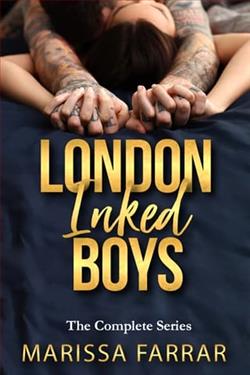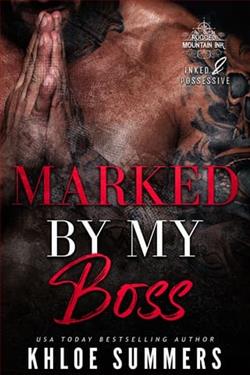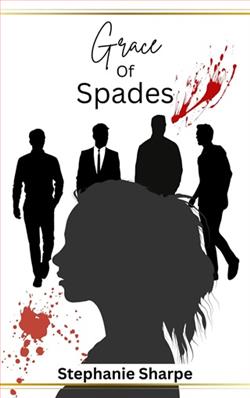Page 6 of His
Then, to my surprise, he says it . . .
“So. How long is this going to go on?”
Four
Astor
I look down, twisting the beer bottle between my hands. I’m honestly surprised it took him so long to ask.
“Astor.” Cillian leans forward on his elbows, demanding my attention. “How long are you going to chase a woman who doesn’t want to be caught? How long are you going to put your billion-dollar company at risk for a woman who doesn’t want to be yours? How long are you going to be the caretaker for a woman you don’t love? How long, friend, are you going to juggle two women at the cost of everything you’ve worked for?”
I don’t respond because I have no answers to the questions.
Cillian snaps closed his laptop and stands. “I’m going to head to the hotel. I’ll be back tomorrow morning to discuss things that need your approval before I head to the New York office.”
I nod as he walks out of the room.
I push away my beer. I don’t even want it anymore.
As I walk down the hallway to the master bedroom, anxiety tightens my body like a winding rope. Dread, like a wall of wind, threatens to push me back while I drag myself forward. It’s the way I feel every time I walk into the bedroom.
Like a prisoner walking to the electric chair.
I open the door.
The moonlight streams over the bed, highlighting my wife’s emaciated body tucked under the covers, and her long blond hair fanned out over the white pillowcase.
I strategically placed two nightlights in the bedroom, allowing just enough light so that I could see without having to turn on a lamp when I check on her throughout the nights.
The moment my boot crosses the threshold, she lifts one finger and begins tapping it against the bedspread, as she does every time I step foot into this room. Her body still and eyes closed, her finger taps, taps, taps, faster and faster, as if she’s matching the beat of my pulse.
Tap, tap, tap . . .
“Why?” she whispers hoarsely, still not opening her eyes. “Why?”
“Why what, Valerie,” I ask quietly, stopping at the edge of her bed, though I know what she’s going to say, because she responds the same way every single night.
Every single fucking night.
“Chloe.” Her face screws into a painful expression. “Chloe, Chloe, Chloe . . .”
The sound of our deceased daughter’s name off her tongue is like knives piercing my heart.
I try to console her as I always do, but it’s useless.
I sink onto the edge of the bed, place my hand over hers. “You’re having a bad dream, Valerie; wake up.”
“Chloe, Chloe, Chloe . . .”
“Valerie. Wake up.”
She begins thrashing under the blanket, unusually agitated.
Since the incident in the airport hangar and then being officially diagnosed, my wife hardly speaks to anyone but me. The doctors say it’s likely a combination of PTSD and her body adjusting to the new medications she takes daily. During the day, she’s mildly lucid, but in the nighttime, somewhere between sleep and wakefulness, my wife continually begs a response to one question:
“Why, Chloe? Chloe, Chloe, why?”
Five















